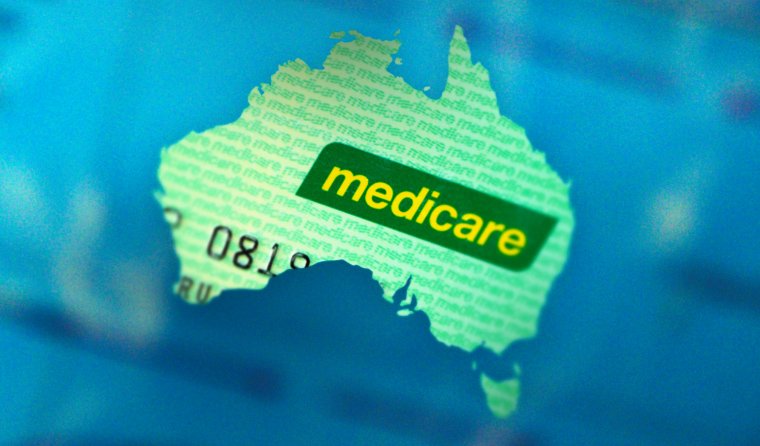Medicare – Child Development Rebates
The public health care system in Australia is complex and unfortunately due to many social, political and economic variables, access pathways for therapy and intervention can become costly, especially if your child is past the age of 7, when they are no longer eligible to the NDIS Early Intervention program. Unfortunately, it often isn’t until after you have been through a diagnostic pathway (and paid for this) that you become aware that Medicare does have additional child development rebates available for General Practitioners (GP’s) and Paediatrician’s.
Transition from ‘Helping Children with Autism’
In 2023 the Federal Government introduced some changes to the Medicare System and Support for Children and families navigating complex neurodevelopment conditions. By way of background, the ‘Helping Children With Autism Program1‘ was available and provided access to referral pathways for children under 13. This program has now been phased out and transitioned into the NDIS and the maximum age requirement has increased from 13 to 25.
So, what does this mean for Parents? This means that you can access additional rebates, via your GP (using MBS 139) which entitles a patient to claim back $136.75 for the purpose of referring a patient for further allied health assessments. If you have an existing Paediatrician, they can use MBS item 137 and you will be eligible for a higher rebate (please note, you will also be liable for a higher consultation fee).
Whether you go to a GP or a Paediatrician, MBS items 137 and 139 are only available once in a lifetime. When a Complex Neurodevelopment process is followed with Medicare, your GP or Paediatrician’ will be able to refer you to a range of allied health providers for the purpose of diagnosis as required. You will also be able to claim back additional funds from Medicare from these providers2.
Complex Neurodevelopmental Rebate Codes
- MBS Item 137 (Paediatrician Assessment)
- Purpose: For the assessment and diagnosis of complex neurodevelopmental disorders by a paediatrician.
- Rebate: $272.50
- Frequency: Once per patient per year.
- MBS Item 139 (GP)
- Purpose: For the review and management of complex neurodevelopmental disorders by a paediatrician.
- Rebate: $136.75
- Frequency: Every 3 months.
- MBS Item 291 (Consultant Psychiatrist Assessment)
- Purpose: For an initial consultation by a consultant psychiatrist to assess a patient with a suspected complex neurodevelopmental disorder.
- Rebate: $391.45
- Frequency: Once per patient per year.
- MBS Item 293 (Consultant Psychiatrist Review)
- Purpose: For a follow-up consultation by a consultant psychiatrist to manage a patient with a diagnosed complex neurodevelopmental disorder.
- Rebate: $195.75
- Frequency: Every 3 months.
- MBS Item 132 (Extended Consultation by a Paediatrician)
- Purpose: For a more extended consultation by a paediatrician when dealing with particularly complex cases or multiple issues.
- Rebate: $402.20
- Frequency: As required, based on the complexity of the case.
Detailed Analysis
Purpose and Utilization
The complex neurodevelopmental rebate codes are specifically designed to support the intensive diagnostic and management needs of children with conditions such as autism spectrum disorder (ASD), attention deficit hyperactivity disorder (ADHD), and other developmental delays. These consultations often require extended time, detailed assessments, and coordinated care plans, which are reflected in the higher rebate amounts.
Accessibility and Frequency
- Assessment Codes: Items 137 and 291 are for initial assessments by a paediatrician and psychiatrist, respectively. These codes can only be used once per patient per year, emphasizing the comprehensive nature of the initial evaluation.
- Review Codes: Items 139 and 293 allow for regular follow-up consultations every three months, ensuring ongoing monitoring and adjustment of the management plan as needed.
- Extended Consultations: Item 132 allows for longer consultations when necessary, providing flexibility for particularly complex cases that require more in-depth evaluation and management.
Financial Implications
These rebate codes significantly reduce the out-of-pocket expenses for families seeking specialized care for their children. Given the frequency and complexity of these conditions, the financial support provided through these rebates is crucial in ensuring that children receive timely and adequate care without placing undue financial stress on their families.
How to Access These Services
- Referral: Obtain a referral from your GP to see a paediatrician or consultant psychiatrist. Ensure that the referral specifies the need for assessment or ongoing management of a complex neurodevelopmental disorder.
- Regular Follow-Ups: Schedule regular follow-up appointments every three months with your specialist to utilize the review codes effectively.
- Extended Consultations: If your child’s condition requires more detailed evaluation, discuss the need for extended consultations with your specialist to ensure that item 132 is appropriately utilized.
Conclusion
Understanding and utilizing these specific Medicare item numbers can make a significant difference in managing your child’s complex neurodevelopmental needs. By being informed and proactive, you can ensure that your child receives the best possible care and support, easing the financial burden on your family.
For more information on these and other relevant MBS item numbers, visit the Medicare Benefits Schedule Online.
